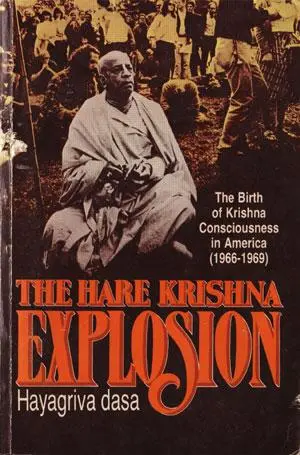So…continuining our month long attempt to stay focused on the childhood pastimes of Krsna, during this month of Damodara (Kartika), we bring you another exciting chapter from; Kṛṣṇa, the Supreme Personality of Godhead. Today we are posting the chapter entitled “Killing the Demons Vatsāsura and Bakāsura”.
…All the cowherd boys would daily go to the bank of the river Yamunā to water their calves. Usually, when the calves drank water from the Yamunā, the boys also drank. One day, after drinking, when they were sitting on the bank of the river, they saw a huge animal which looked something like a duck and was as big as a hill. Its top was as strong as a thunderbolt. When they saw that unusual animal, they became afraid of it. The name of this beast was Bakāsura, and he was a friend of Kaṁsa’s. He appeared on the scene suddenly and immediately attacked Kṛṣṇa with his pointed, sharp beaks and quickly swallowed Him up. When Kṛṣṇa was thus swallowed, all the boys, headed by Balarāma, became almost breathless, as if they had died. But when the Bakāsura demon was swallowing up Kṛṣṇa, he felt a burning fiery sensation in his throat. This was due to the glowing effulgence of Kṛṣṇa. The demon quickly threw Kṛṣṇa up and tried to kill Him by pinching Him in his beaks. Bakāsura did not know that although Kṛṣṇa was playing the part of a child of Nanda Mahārāja, He was still the original father of Lord Brahmā, the creator of the universe. The child of mother Yaśodā, who is the reservoir of pleasure for the demigods and who is the maintainer of saintly persons, caught hold of the beaks of the great gigantic duck and, before His cowherd boy friends, bifurcated his mouth, just as a child very easily splits a blade of grass. From the sky, the denizens of the heavenly planets showered flowers like the cāmeli, the most fragrant of all flowers, as a token of their congratulations. Accompanying the showers of flowers was a vibration of bugles, drums and conchshells.
This description of Krishna killing the demon Bakasura by bifurcating his mouth, has always intriged me, and after years of hearing and reading this story I finially decided to look up the word bifurcate.
bi·fur·cate
verb
past tense: bifurcated; past participle: bifurcated
ˈbīfərˌkāt/
divide into two branches or forks.
“just below Cairo the river bifurcates”
(from Merriam Webster dictionary)
Full chapter More

















